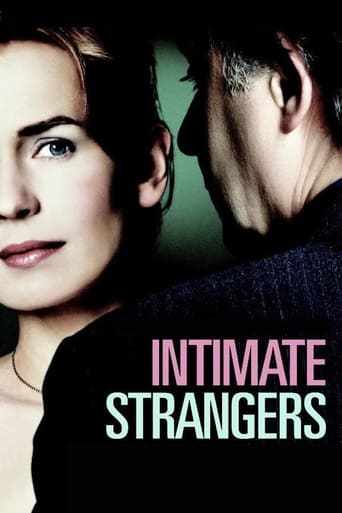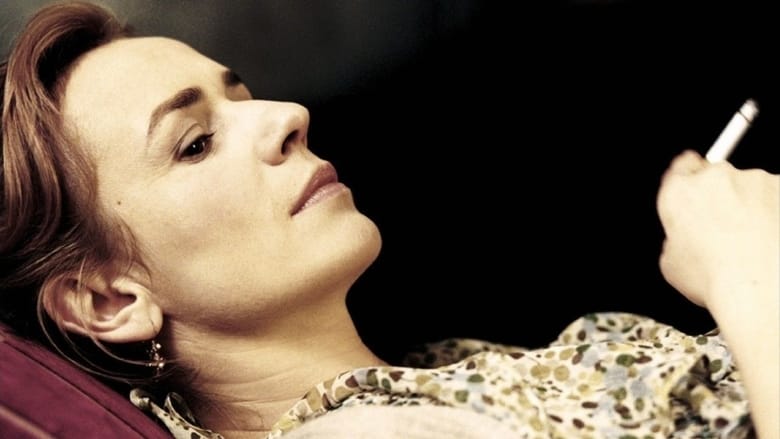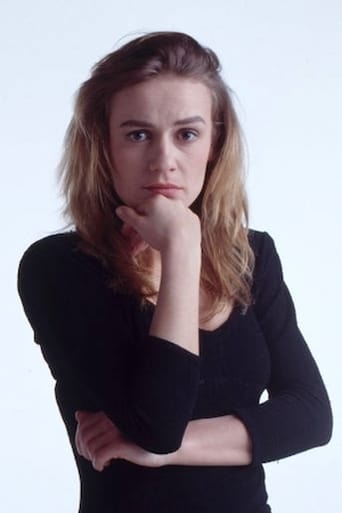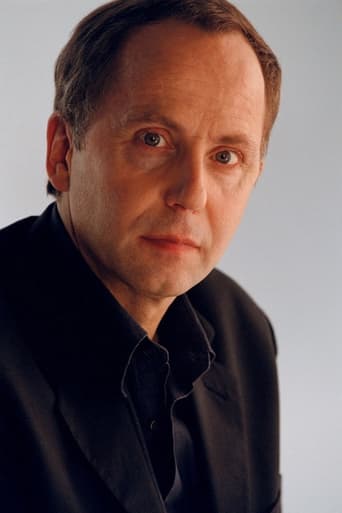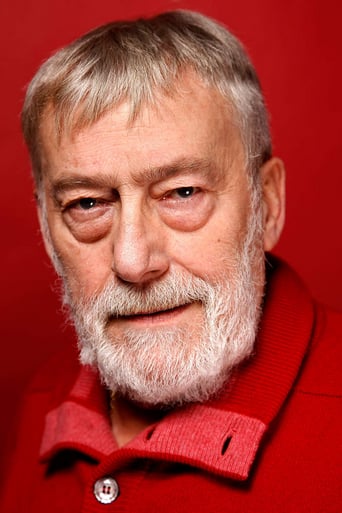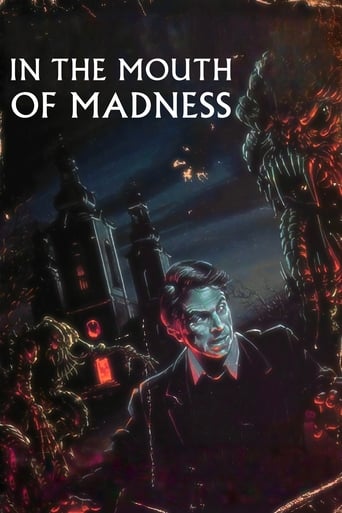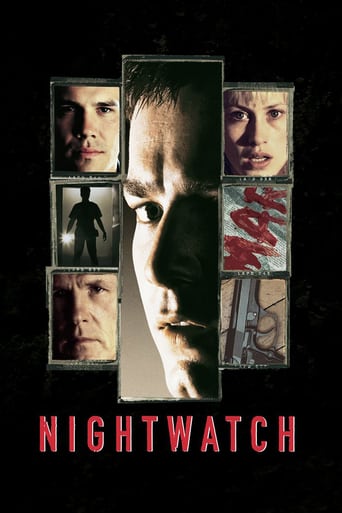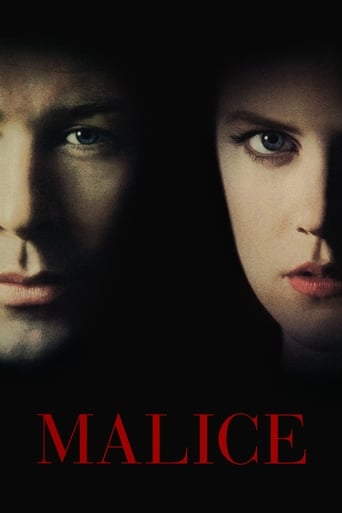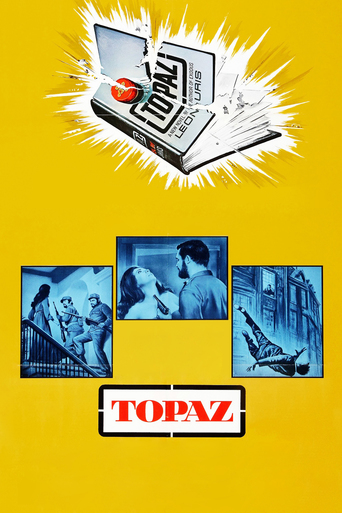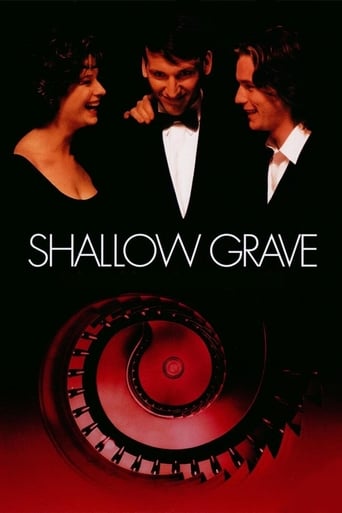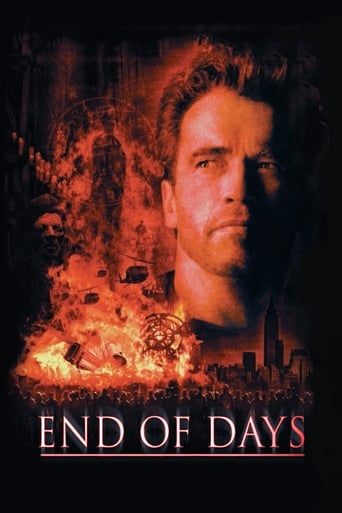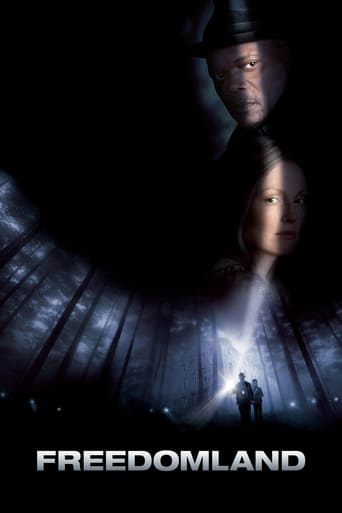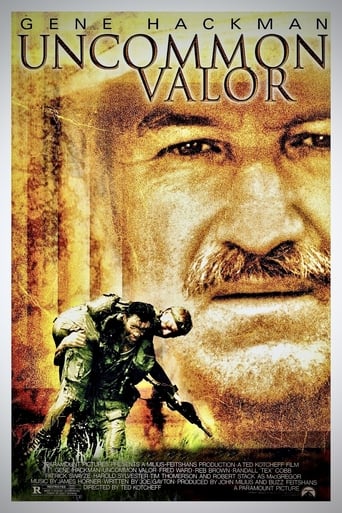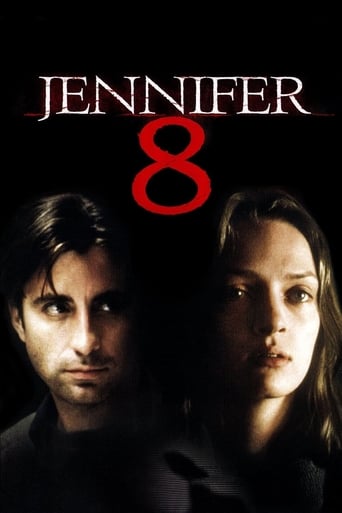Intimate Strangers (2004)
Because she picked the wrong door, Anna ends up confessing her marriage problems to a financial adviser named William Faber. Touched by her distress, somewhat excited as well, Faber does not have the courage to tell her that he is not a psychiatrist. From appointment to appointment, a strange ritual is created between them. William is moved and fascinated to hear the secrets no man ever heard.
Watch Trailer
Free Trial Channels
Cast


Similar titles
Reviews
Excellent, Without a doubt!!
It's fun, it's light, [but] it has a hard time when its tries to get heavy.
This is one of the few movies I've ever seen where the whole audience broke into spontaneous, loud applause a third of the way in.
The best films of this genre always show a path and provide a takeaway for being a better person.
The plot is from farce. Old as the hills. Mistaken identity. It is the stuff of many a great comedy but this film is not funny. It is as dull as only the French can make dull films. Words. Words. And more words. In short, an unhappy married woman looking for her new shrink walks into the tax office next door. Yep. That's the hook. The guy that plays the taxman who is thought to be a shrink has got a couple of expressions. Big eyes, and even bigger eyes. Shocked and surprised eyes. But he doesn't have much else. An old office and hard to believe, not a computer in sight. The leading lady smokes a lot and tells him all her rude secrets. Wow! Light the fuse. Fun! Er... no. This is France. No fun. Just lots of terrible corny clichés like at the end when the dim witted woman flicks her lighter to show the flame of love is still there. I won't go on. This film is garbage and I only give it any stars at all for the idea not embraced.
Immediately after watching this film, I was (unusually) not inclined to put my views to paper. I think I was vaguely disappointed and felt the film too inconsequential. On reflection, I have a fond feeling for it and suppose that my initial reservation was partly that there seemed so little to it. A woman goes into talk about herself to a psychiatrist and accidentally goes into a tax advisor's office instead. Nice idea but where does it lead? Well, dramatically it doesn't send us off into a great labyrinthine storyline but there is plenty to stir the grey matter and plenty of amusing moments along the way. Very good and likable performances by the two leads and good secondary ones from the elderly secretary, who really doesn't approve and the psychiatrist she was supposed to see, who also really doesn't approve! He does however make the inspired comment that the two men are perhaps not that far apart as they both cater to those who are coping with what not and what to reveal. Not so bad after all and well worth a watch.
(Note: Over 500 of my movie reviews are now available in my book "Cut to the Chaise Lounge or I Can't Believe I Swallowed the Remote!" Get it at Amazon.)This is the most nuanced of Patrice Leconte's films that I have seen. Everything is carefully constructed at a measured pace with just enough revelation as we go along, but no more, so that we can follow the plot's development easily. The film is cut as close as a barber's shave and is as neat as a pin.Anna (Sandrine Bonnaire), who is a bit of a tease, finds herself in what she thinks is a shrink's office. (There's a magazine on the desk whose title is partially obscured so that only the word "analyst" appears to her eyes, thereby confirming her expectations.) Behind the desk however is William Faber (Fabrice Luchini) who is a tax accountant and perhaps the last man in the building who could conceivable help Anna with her marital problem. He is after all something of recluse. He doesn't drive. He usually eats alone in his apartment, which apparently is the same place as his office, watching TV (in one scene it's Humphrey Bogart as Phillip Marlowe with French subtitles). He is only marginally experienced in the ways of human relationships and knows little about psychoanalysis. (The "analyst" magazine on his desk was on economic analysis.) She flips a zippo cigarette lighter, lights a cigarette like someone new to smoking, and begins to tell a somewhat astonished Faber about the intimate details of her married life, mainly that her husband won't touch her anymore.I previously saw Bonnaire in La Ceremonie (1995), directed by Claude Chabrol, in which she played a mean, hateful housemaid, and she was very good there. Here she is playful, almost childish at times, as she reveals her life to this stranger.This is the first time I have seen Luchini who is very properly Parisian in his carefully knotted tie (worn even while preparing his solitary meal). His acting style is markedly laid back. He carries an almost continual look of surprise on his face--astonishment almost--with his eyes made big and round and his demeanor controlled and taciturn.Because Anna is so direct and begins talking about herself almost immediately and because Faber is a most polite man who will not interrupt her, it is several minutes before he has the opportunity to advise her that she really wants the office down the hall where the psychoanalyst Dr. Monnier holds forth. By then he is intrigued with her and smitten, and is slow, very slow, to advise her of her error.Also because Anna likes to talk about herself like a teenager and because William Faber is a practiced listener, there is a certain simpatico that automatically develops.One can see where this is heading. She talks, he listens. She performs, so to speak; he appreciates. Faber is the kind of man, as his "ex" points out, who never makes the first move. This is good for Anna because it allows her to become comfortable with him before she has to respond.The complications begin with the appearance of Anna's husband who first makes an unusual sexual demand of the very proper tax accountant, and then when that is refused, treats Faber to a most upsetting motel scene through a window across the way. Yes, it's a little contrived (as is the movie's premise). But I like the way Leconte didn't let us see the scene and only revealed later what Faber had seen.Near the end of the film we see Faber for the first time sans necktie, which we can guess signals a change in the man. The film ends in a most artistic way with a shot from above as Anna lies stretched out on a classic analyst's couch in a cute frock with her ankles crossed and Faber... Well, we see the credits roll down the screen and we can imagine what will eventually happen.My favorite Leconte film is Ridicule (1996). I also liked his La Fille sur la pont (1999). If you haven't seen his work you are in for a treat. He is witty in a sly way (especially here in Confidence trop intimes) and can be strikingly original. Like all good directors, he never loses track of the audience and the needs of the audience. His films are carefully cut so that we always know what is going on, but without any heavy-handedness.See this for Patrice Leconte, one of France's most talented film makers.
Patrice Leconte is fascinated by offbeat, enigmatic, eccentric relationships. Most of all, he likes to film quirky love stories. "Monsieur Hire" (1989), was adapted from a Georges Simenon novel about a forlorn voyeur who is obsessed by a beautiful young woman he watches constantly from afar. "The Hairdresser's Husband" (1990)is the story of a drifter, a man with a passion for women barbers that began in childhood, who finally fulfills his dream.In "The Girl on the Bridge" (1999), a down and out carnival knife thrower and a striking young woman save each other from suicide. And in "Felix and Lola" (2001), another carney with dubious prospects is attracted to a seductress with questionable loyalties. Even in "The Widow of St. Pierre" (2000), arguably his best film, although the story focuses to a degree on the connections between two men, their tie owes its existence to the more substantive relationship each has with the same woman.Certain themes keep resurfacing in this corpus. The men are always middle aged, shopworn by responsibilities, personal habits or life itself. The women are attractive, sexy, mysterious and bold. More bold than the men, who tend toward reticence and inhibition. The women also seem more influential, if not stronger. They are able to discern and open up closed places within the psyche of these men, while at the same time the women remain enigmatic to their devoted consorts. A sexual relationship seems less important than the man's fascination with the enigma of the woman, and her ability to evoke hidden aspects within the man.Now we have Leconte's latest offering, "Intimate Strangers." The story revives all the familiar Leconte themes. It even stars Sandrine Bonnaire, who also played the young woman that so captivated M. Hire in Leconte's film 15 years earlier. Here she is cast as Anna, a dyslectic, depressed, mysterious and powerful Parisian beauty who seeks psychiatric help for marital troubles.On the day of her first appointment with a psychoanalyst, she gets the directions to his office wrong and ends up spilling out her problems to an upscale tax accountant, William Faber (Fabrice Luchini, a French comedian), who at first mistakes her for a new tax client. Her husband Marc has withdrawn emotionally from her, Anna tells Faber; he refuses sex or affection. She wants help to restore their former harmony.The plain, fastidious Faber is so retiring, surprised, and spellbound by this lovely woman, that he cannot collect himself enough to stop and redirect Anna, who pretty much runs the conversation and ends by asking for a second appointment, which William reflexively consents to. He tries to square things at this second meeting, but Anna dismisses his claim not to be a doctor by saying she is well aware that not all analysts hold doctorates. After she leaves, Faber dashes off down the hall to consult the real analyst about what to do now. These doings set the stage for an amusing romantic comedy. It's one that takes a few good natured pokes at psychoanalysis. But as events unfold, one might easily conclude that this story could represent an analyst's most enjoyable fantasy, a therapist's deluxe wish fulfillment: having your patient and helping her too, while getting all the good lines, the fees, immunity from ethics charges, and a free lunch into the bargain. My rating: 8/10 (B+). (Seen on 08/17/04). If you'd like to read more of my reviews, send me a message for directions to my websites.

